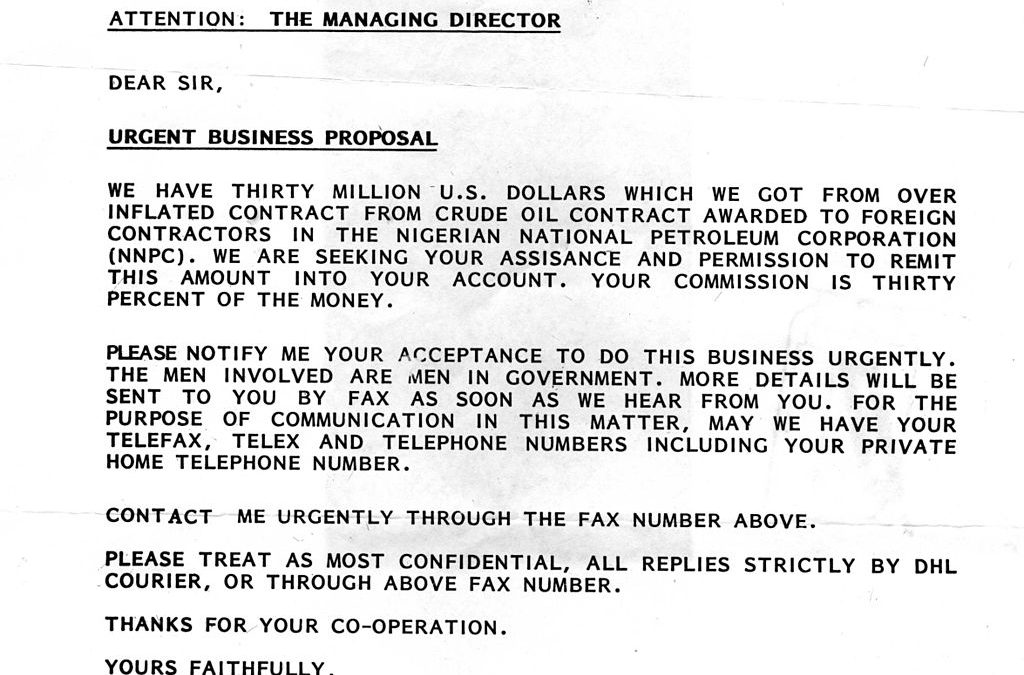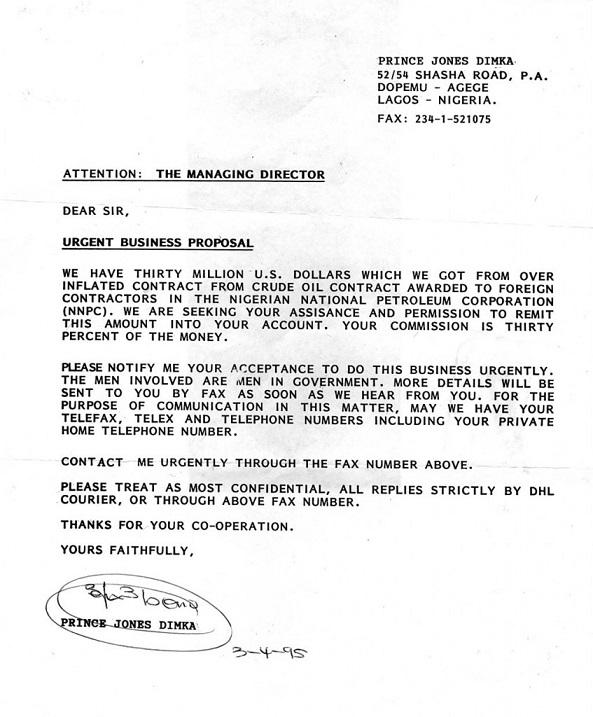KEY TAKEAWAY: If ATIP Law is your attorney of record for a matter, do not respond to any correspondence or pay any bill that you receive from a third party for that matter. If there is any doubt, please send the correspondence to us to review.
When we file documents related to patents, trademarks, copyrights, business registrations, domain names or lawsuits, contact information is entered in various databases. These databases are usually publicly accessible.
Those who perpetrate scams (scammers) can then obtain your contact information and target you with scams. Since people and companies on these databases are seen as wealthy, they can become enticing targets for scammers.
Over the years I have seen many different types of scams, frauds and unethical behaviors. Here is a partial list:
- unlicensed services
- monitoring services or reports
- foreign registration
- investment opportunities
- financing
- invention promotion
- filing documents or fees with the government
- taxes
- registration of information in private registries
- registration of domain names
- domain slamming
- insider information
- inheritance
- phishing
- Nigerian scams
- questionable goods
- romance
Unlicensed Services
Some scammers offer unlicensed services. For example, the U.S. Patent & Trademark Office only allows registered Patent Attorneys and Patent Agents to represent applicants in the Patent Office. Yet unlicensed scammers offer patent services, sometimes charging more than licensed professionals. To get around the license requirement, scammers list themselves as co-inventors on patent applications. These scammers do not tell the true inventors that, absent an agreement to the contrary, each co-inventor has equal rights in a patent after it is granted. A scammer who is listed as a co-inventor on a patent may fully exploit the patented invention without accounting to the true inventor.
Furthermore, the patent may be invalid because it does not accurately list the true and actual inventors. Once they learn of this issue after the patent is granted, most true inventors do not challenge the scammer and clean up the patent because doing so is expensive and could invalidate the patent.
No Value
Some scammers provided the promised service, but they mislead you as to the value of the services. For example, some companies offer to register your information in a private registry, which they do. However, the registry provides no value because it is not widely known or referenced by others and it provides no legal benefit. Other scammers provide reports that you could easily obtain for free from a public database.
Foreign Registration Scam
Another common scam involves an entity in a foreign country, often in China, that claims to register domain names, trademarks or other properties in that country. This scammer says it has received an application that conflicts with your rights, but it is delaying registration for a short time to give you a chance to file your own application. This scam creates a sense of urgency and plays on your desire to stop squatters.
In another scam, a foreign company simply sends you an invoice that appears to be related to a trademark or other property you have registered. Because you just received a registration, you are more likely to think that the invoice is legitimate. I have seen many of these invoices for relatively large amounts of money and I often wonder how many companies simply pay the invoice without questioning it.
Fraudulent Claims of Ownership
In a related fraud, a scammer offers to sell you a domain name that should be of value to you; for example, it is similar to your trademark or existing domain. In reality, the scammer has not yet registered the domain. After you agree to buy the domain, the scammer registers the domain name and transfers it to you for an inflated price. This scam has been perpetrated by domain name registrars against their own customers.
Implied Government Affiliation
Some scammers attempt to pass themselves off as an official domestic or foreign government agency. These scam companies may use “United States”, “U.S.”, “Federal” or “National” in their names and they may display a logo that looks like an official government seal. Scammers may also display actual application numbers and other public information on their solicitations. The overall look of the solicitation may be very similar to official government documents. These scammers may use alarming language and forcefully reference approaching deadlines.
If we are your counsel of record in a matter, you should almost never receive communication directly from the government in that matter. You should forward all communication related to such matters to us as soon as possible.
Ransomware
Another interesting scam involves malware that freezes your computer screen. The screen says that you have violated certain laws, such as committing copyright infringement or visiting illegal websites, and that the user must pay a fine in order to unlock the computer. The malware may purport to be from the government. Even if the user pays, the malware remains on the computer where it may be used to commit further frauds.
Court Proceedings
In this scam, you receive a call from someone falsely identifying himself as a law enforcement or court officer. The caller claims that an arrest warrant has been issued against you for failure to appear for a court proceeding. Once again, the proceeding may be purported to be related to your intellectual property. The scammer then offers to dismiss the warrant for a sum of money. Of course, never give personal information or payment authorization to anyone in this situation.
Nigerian 419 Scams
Some scam solicitations can be entertaining if you recognize them for what they are. Here Prince Jones Dimka is asking for your help to liberate $30 million in questionable funds. You get $9 million just for the use of your account.
Unfortunately, scam solicitations can also be difficult to recognize and many savvy people have been deceived. According to the FBI:
. . . millions of dollars in losses are caused by these schemes annually. Some victims have been lured to Nigeria, where they have been imprisoned against their will along with losing large sums of money. The Nigerian government is not sympathetic to victims of these schemes, since the victim actually conspires to remove funds from Nigeria in a manner that is contrary to Nigerian law. The schemes themselves violate section 419 of the Nigerian criminal code, hence the label “419 fraud.”
Nigerian scams can involve intellectual property, such as counterfeit and infringing goods, theft of trade secrets, cyber attacks and industrial espionage.
Protect Yourself and Your Company
Here are a number of things you can do to help protect yourself:
- Do not disclose personal or company information unless it is necessary. This includes disclosing information to government entities.
- Be cautious when you receive correspondence from any entity you do not know. You should carefully investigate these entities, especially if they request significant funds or sensitive information.
- Employers should educate employees to be vigilant for scams. An employee who has been lured into a scam may damage the company’s interests in many different ways, even if the scam initially targets only the employee. Companies should establish a culture that encourages employees to disclose mistakes. An employee who attempts to cover up his or her mistake may cause even more damage.
- If you come across any suspicious correspondence, you should report it to your attorney or the appropriate authorities. Most scams go unreported for various reasons and this helps perpetuate them.
We work hard to protect our clients from scammers. Among other things, we only use client information when it is required and we disclose only the minimum amount required. We have also developed a number of strategies that help protect the privacy of our clients.
If you come across any unusual, interesting or entertaining scams, please send a copy to me. I would like to add it to my Scam Hall of Shame.
For more information, visit the FBI Scams & Safety page.


